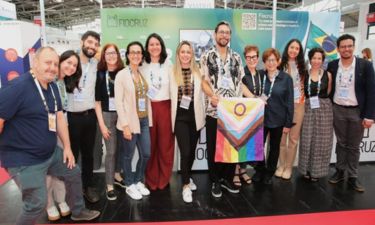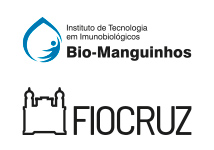
Representatives from the Oswaldo Cruz Foundation were among the more than 10,000 people attending the 25th International AIDS Conference, the largest gathering on HIV and AIDS in the world. The event took place from July 22 to 26 in Munich, Germany, and brought together scientists, managers, politicians and activists from around the world for dozens of oral abstract sessions, lectures, workshops, symposia and posters, among other attractions that showcased innovations, scientific advances and radical changes. Activists highlighted urgent issues for equal access to progress, and politicians renewed their commitment to an effective response to HIV.
Bio-Manguinhos Director Mauricio Zuma emphasized that "it is extremely important for the Institute to be present in global discussions on HIV/AIDS to better serve the Unified Health System and strengthen policies to combat the epidemic. We need to encourage early diagnosis so that patients can have rapid access to drug treatment. Therefore, Bio-Manguinhos' role is to provide products that have highly sensitive and accurate technology. The indigenous development of the NAT Plus Kit and its implementation in the Brazilian public blood network was one of the greatest gains for transfusion safety, detecting HIV, hepatitis B, hepatitis C and malaria in all donated blood bags in the country, setting an example and model to be followed worldwide. In addition, the technology opens up the possibility of incorporating new targets in the future." With the support of the Fiocruz presidency, the Bio-Manguinhos, Farmanguinhos and the Evandro Chagas National Institute of Infectious Diseases (INI) units were present at a joint stand, highlighting their contributions in providing diagnostics, medications, patient treatment and research.
Participation in the congress allowed the Foundation to showcase its important contribution to the Brazilian Ministry of Health, through the Unified Health System (SUS), in research, patient care and production of drugs and diagnostics for the Brazilian response to HIV/AIDS. “Not only scientists, but also world leaders can join forces in the fight against this health threat and in the development of effective public policies. We have been in this challenging fight for five decades. A recent UNAIDS report shows us the gravity of the epidemiological situation: one person dies every minute in the world from causes related to AIDS,” commented Talita Wodtke.
Text: Maria Carolina Avellar
Image: Alexandre Magno


